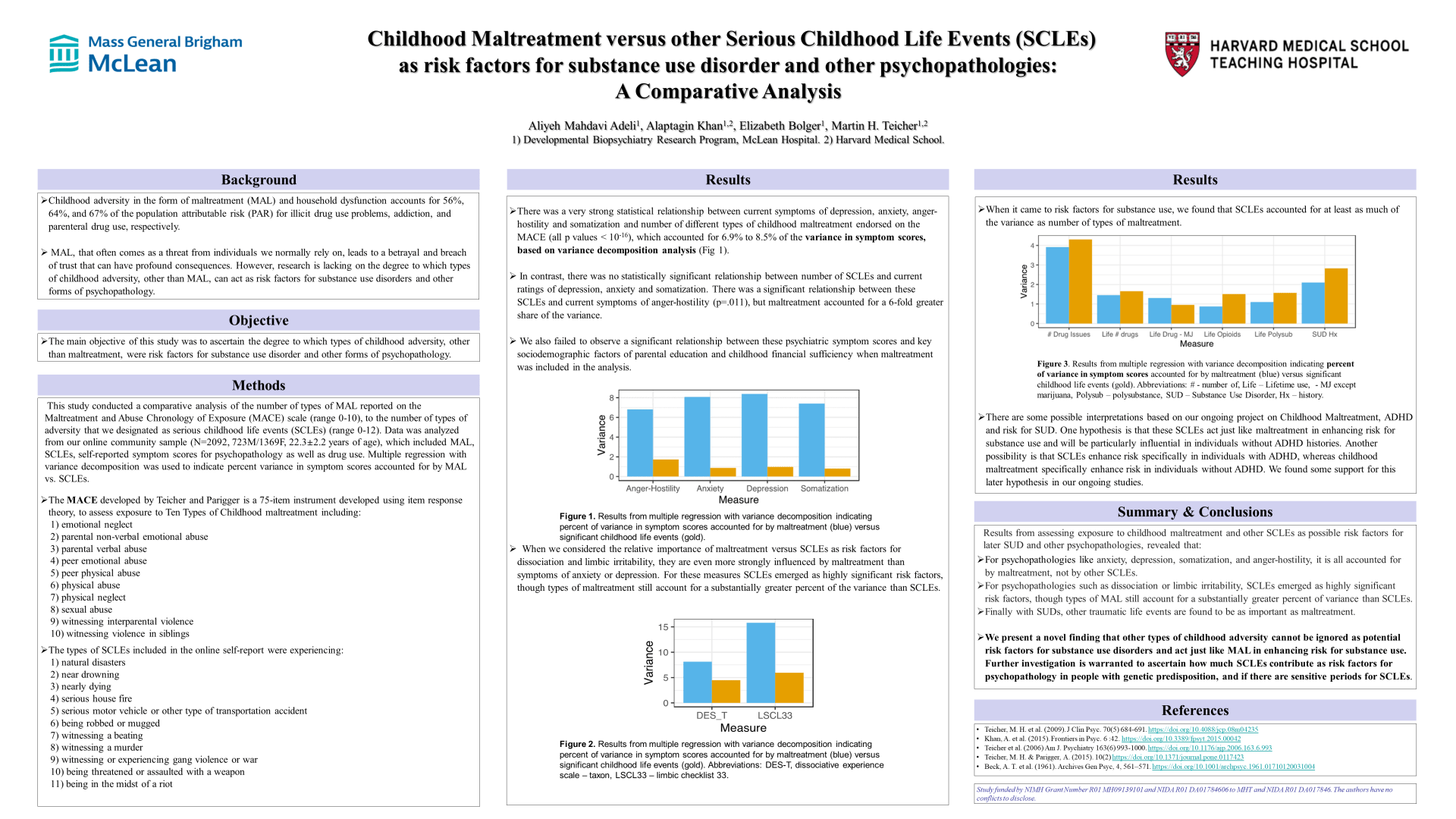Scientific Abstract
Background: Childhood adversity in the form of maltreatment (MAL) and household dysfunction accounts for 56%, 64%, and 67% of the population attributable risk (PAR) for illicit drug use problems, addiction, and parenteral drug use, respectively. MAL, that often comes as a threat from individuals we normally rely on, leads to a betrayal and breach of trust that can have profound consequences. However, research is lacking on the degree to which types of childhood adversity, other than MAL, can act as risk factors for substance use disorders and other forms of psychopathology.
Methods: In this study we conducted a comparative analysis of the number of types of MAL reported on the Maltreatment and Abuse Chronology of Exposure (MACE) scale (range 0-10), to the number of types of adversity that we designated as serious childhood life events (SCLEs) (range 0-12). Data was analyzed from our online community sample (N=2092, 723M/1369F, 22.3±2.2 years of age), which included MAL, SCLEs, self-reported symptom scores for psychopathology as well as drug use. Multiple regression with variance decomposition was used to indicate percent variance in symptom scores accounted for by MAL vs. SCLEs.
Results: We found a very strong statistical relationship between current symptoms of depression, anxiety, anger-hostility, and somatization and types of MAL on the MACE (all p values < 10-16). There was no significant association between number of SCLEs and depression, anxiety, and somatization except for anger-hostility (p=0.011), but MAL accounted for 6-fold greater share of the variance. However, when it came to risk factors for substance use, we found that SCLEs accounted for at least as much of the variance as types of MAL.
Conclusions: We present a novel finding that other types of childhood adversity cannot be ignored as potential risk factors for substance use disorders and act just like MAL in enhancing risk for substance use. Further investigation is warranted to ascertain how much SCLEs contribute as risk factors for psychopathology in people with genetic predisposition, and if there are sensitive periods for SCLEs.

